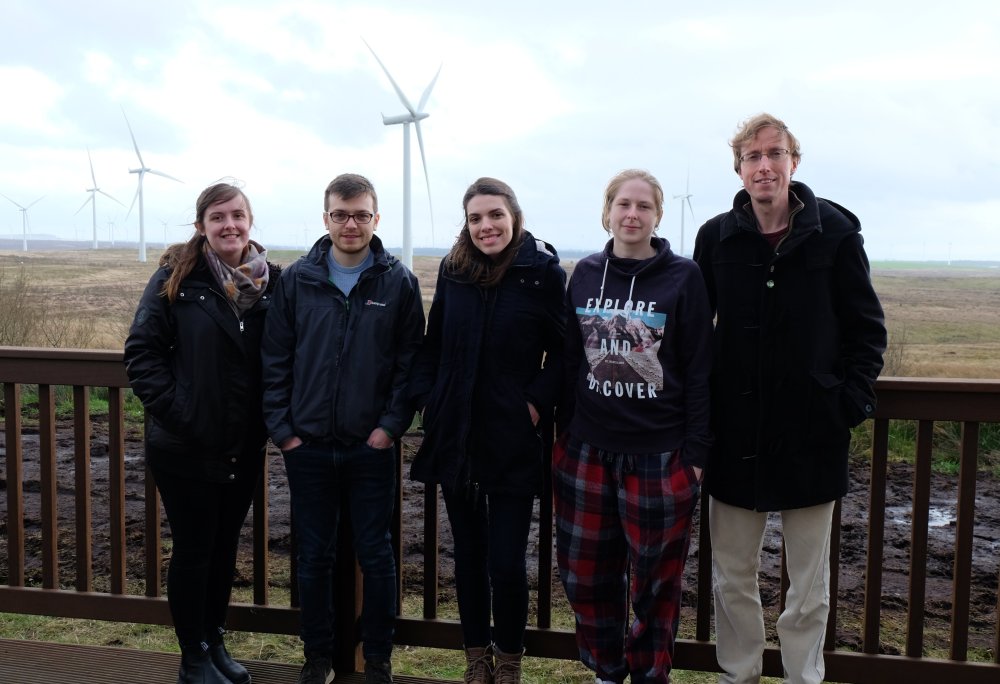Introduction
Welcome to our website, the key deliverable of our group project: Clean Heat at the Water’s Edge. Over the four-month timeline, we looked to investigate how the heating needs of waterside developments can be decarbonised.
We give an overview of the methodology followed and present our results from applying this to a case study, with the hope that our process and recommendations can prove a useful template for future low-carbon developments.
We are a group of 5 students at the University of Strathclyde on the MSc course entitled ‘Sustainable Engineering: Renewable Energy Systems and the Environment’. Read more about us on the Team page.

The team on a field trip to Whitelee Wind Farm
Context
-
Need to decarbonise heat:
With widespread renewable energy deployment, the UK and Scotland in particular have greatly reduced the carbon intensity of electricity generation but transport and heating are still heavily reliant on fossil fuels.
-
Housing shortfalls and derelict land:
Throughout the UK, there is a combination of housing shortfalls, particularly of an affordable nature, and post-industrial brownfield sites[1]. In Glasgow, 58% of residents live within 500 metres of derelict land and population is expected to rise 15% by 2036 [2].
-
High heat demand, driven by low-efficiency buildings:
UK has the oldest building stock in the EU-28, with 64% built before 1970. [3]
-
Gas boiler ban from 2025:
In March 2019, UK Legislation was passed to ban the installation of gas boilers in new-built homes after 2025. [4] This phase out of gas boilers is likely to give rise to increased uptake of electrically-powered heat pumps, which offer greater efficiency and reduced emissions.
-
District heating on the rise:
Just 2% of UK heat was provided by networks in 2017 [5] and estimates by the Department of Energy and Climate Change anticipate that this will increase to between 14-20% by 2030. [6]
-
Curtailed wind turbines:
At present, wind farm owners are paid to turn off turbines when they are producing more energy than the grid can handle. This is known as a constraint payment and acts as compensation for loss of Renewable Obligation Certificates (ROCs) since the generator cannot sell this energy to consumers. For example, there was an estimated 19% energy curtailment to Whitelee wind farm, near Glasgow, in 2018[7]. ROCs are no longer available for onshore wind developments and many existing contracts, with their constraint payments, are due to expire over coming years. Generators will have to find another means of monetising this curtailed capacity.
-
Climate Emergency:
Set against backdrop of the “Climate Emergency” declared by Scottish First Minister Nicola Sturgeon in May 2019.
Project Aims
- Reduce carbon emissions from space & water heating
- Incorporate local renewable resources
- Provide market for constrained wind
- Produce methodology for future waterside developments